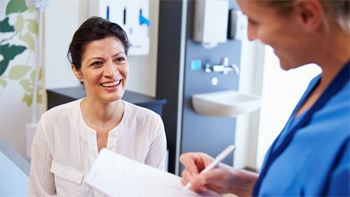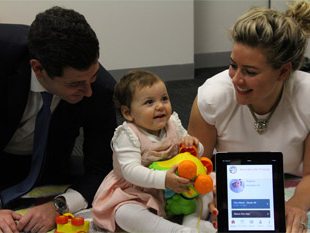Pap Tests Are Changing

Pap Tests Are Changing
Before we get started, here are a few handy facts:
The Pap test (also called the Pap smear test) is a simple test that checks for changes to the cells of the cervix that may lead to cervical cancer
The cervix is a part of the female reproductive system that connects the top of the vagina with the base of the uterus (womb)
Almost all cases of cervical cancer are caused by a virus called HPV, which is short for human papillomavirus and also known as the -wart virus'.
So, what's changing with the current Pap test?
On May 1, 2017, the Pap test is going to be replaced with a more accurate test called the Cervical Screening Test.
In the new test, the sample is collected in the same way as the Pap test – by taking a small sample of cells from the woman's cervix. However, the new test will be processed in a different way in the laboratory.
In the lab, the current test looks for abnormal cell changes, some of which may go on to develop into cancer. The new Cervical Screening Test will be looking for the cause of the abnormal cells: the human papillomavirus (HPV). In this way, the new test is a step ahead of the current Pap test and is a fantastic development for Australian women.
The new Cervical Screening Test is based on new evidence and improved technology. It will improve early detection of cervical cancer and save more lives. Pap tests have already halved the rates of cervical cancer since 1991, but we can do better. The new Cervical Screening Test will help to protect Australian women even more.
What else is different about the new test?
For those women who find getting a Pap test a little awkward or uncomfortable, we have more good news: currently, the recommended time between Pap tests is two years, but under the new guidelines, most women will be recommended to have the Cervical Screening Test every five years.
Also, instead of starting the tests at 18 years of age, women will be recommended to be tested from 25 to 69 years of age. Women aged 70-74 years will be invited to have an exit test (a final test).
I have had the HPV vaccine, do I still need to be tested?
Yes. The HPV vaccine does not protect against all types of HPV infection that are known to cause cervical cancer, so it is important that you still get tested regularly.
What do I need to do now?
It is very important that you keep to the current schedule of two-yearly tests. You will then be due for your first Cervical Screening Test two years after your last Pap test. You will be prompted to make an appointment for the new test through the National Cancer Screening Register.
If you have any new symptoms (including pain, painful sex or abnormal bleeding or discharge) in the time between your tests, make an appointment with your GP as soon as possible to discuss these changes.
What else can I do to prevent cervical cancer?
Take actions to decrease your risk of contracting a sexually transmitted infection (STI); for example, always using condoms
Consider the HPV vaccine. If you were not vaccinated as part of the school-based program, speak to your GP about whether this option is right for you
Quitting smoking (or never starting) is a key step in protecting yourself against, and reducing your risk of, cervical cancer.
Where to from here?
In the coming months, Jean Hailes for Women's Health will keep you up to date with these changes and provide helpful tips and information on how to best manage this important area of your health.
Read more about the current Pap test and other important health checks on the Jean Hailes website.
Published with the permission of Jean Hailes for Women's Health
jeanhailes.org.au
1800 JEAN HAILES (532 642)
Have You Seen This?
MORE












